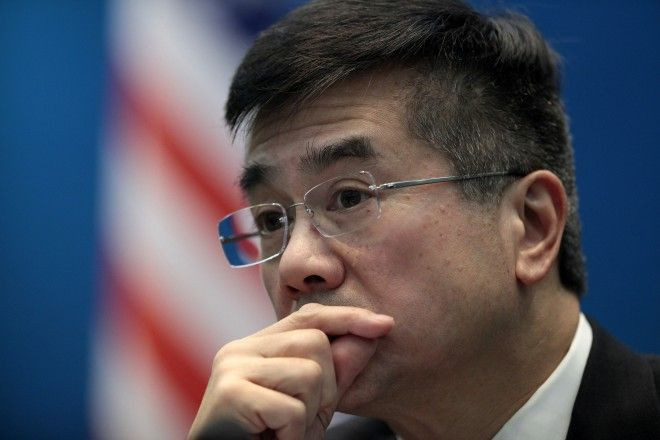Asian Americans increasingly defying the STEM stereotype

Asian Americans are increasingly shifting away from traditional professions in science, technology, engineering, and mathematics (STEM) and into the fields of law (politics) and business.
While this statement is true in a broad sense, the reality is deeper and more nuanced. This shift also brings new challenges and implications for Asian American and immigrant Asian professionals.
Immigrant Asians vs. Asian Americans
Larry Shinagawa, director of the Asian American Studies Program at the University of Maryland, said that second (and third and fourth) generation Asian Americans make markedly different career choices compared to first-generation, or immigrant Asians (many of whom are not yet citizens).
First-generation immigrant Asians typically pursue STEM careers -- fields that are secure, prestigious, pay well, and have low barriers to entry, explained Shinagawa. He added that two generations ago, Asian Americans (even those born and raised in the U.S.) also largely pursued stereotypical STEM careers.
However, Asian Americans (second-, third-, or fourth-generation) have recently begun to defy the STEM stereotype.
Now, a greater number of them study humanities and social sciences versus STEM disciplines. And after completing their studies, an increasing number of them are entering into law and business.
Shinagawa said that many Asian Americans feel more Americanized and believe they have a broader range of occupational choices. As to why they choose business and law specifically, he explained that many Asian Americans do not feel they can compete with immigrant Asians in STEM fields, so they opt for law and business, which offer the same or better pay and prestige compared to STEM jobs.
Challenges
Both Asian Americans and immigrant Asians face challenges in their respective chosen professions, but for different reasons. Since 9/11, many of the STEM opportunities are increasingly within the government or with government contractors and they often require employees to be citizens. Obviously, this restricts immigrant Asians.
For the many Asian Americans entering into law and business, some are not finding all the riches and honors they were hoping for. Shinagawa said that according to studies, Asian Americans pursuing STEM disciplines receive “far better commensurate returns” than those in law and business. One reason is that they probably face racial barriers in those industries, said Shinagawa. Compared to law and business, performance (and thus reward) in STEM fields are more quantified and measurable, so there is less room for racism. However, racism alone does not tell the story.
Unlike STEM fields, a large part of law and business is based on networking, politics, and influence, areas that some Asian Americans are lacking in. Skills in communication (especially in writing), leadership, conflict management, and team building are also essential for success, said Shinagawa.
Shinagawa is concerned that some of the Asian Americans entering into law and business are not investing enough in these intangible skills. In addition, he believes that Asian American communities can do a better job of fostering these qualities in their youths, especially with regards to communicating and working with people outside their own backgrounds.
The Stars in non-STEM fields
Of course, some Asian Americans in law (politics) and business have obviously overcome these challenges and are enormously successful.
Gary Locke, a third-generation Chinese American, became the governor of Washington in 1996. He was the first Asian American to become a state governor outside of Hawaii. In 2007, Vikram Pandit became the CEO of Citigroup (NYSE: C), one of the “Big Four Banks” in the U.S.
Pandit's achievement is astounding given the fact that he came to the U.S. at the age of 16. Also, although Locke was born in the U.S., he apparently did not learn English until he was 5 years old.
Shinagawa said these Asian American individuals were able to excel because they were savvy and very willing to network. They were very open to learning from others (including those from diverse backgrounds) and probably had good mentors in their careers.
Shinagawa said that very successful Asian Americans in business and law are multi-dimensional or multi-referential, meaning they think in contexts outside their own backgrounds and are willing to reach out to diverse people, he noted.
Word of Advice for Asian Americans
Shinagawa pointed out another interesting phenomenon; later generation (second, third, fourth, etc.) Asian Americans on average have markedly lower education and income compared to immigrant Asians.
In 2007, 33 percent of PhDs conferred in the U.S. were to Asians. However, of that 33 percent, only 2 percent were Asians Americans born or raised in the U.S.
Perhaps some Asian Americans should take some lessons from their immigrant counterparts, at least when it comes to career choices.
Shinagawa said that there is currently no clear evidence that business and law pay more than STEM careers.
He thinks that it is “ridiculous” that some Asian Americans have become biased against STEM disciplines. Indeed, just like one or two generations ago, they still offer Asian Americans the same high pay, prestige, and stability.
Email Hao Li at hao.li@ibtimes.com
Click here to follow the IBTIMES Global Markets page on Facebook.
Click here to read recent articles by Hao Li.
© Copyright IBTimes 2024. All rights reserved.





















